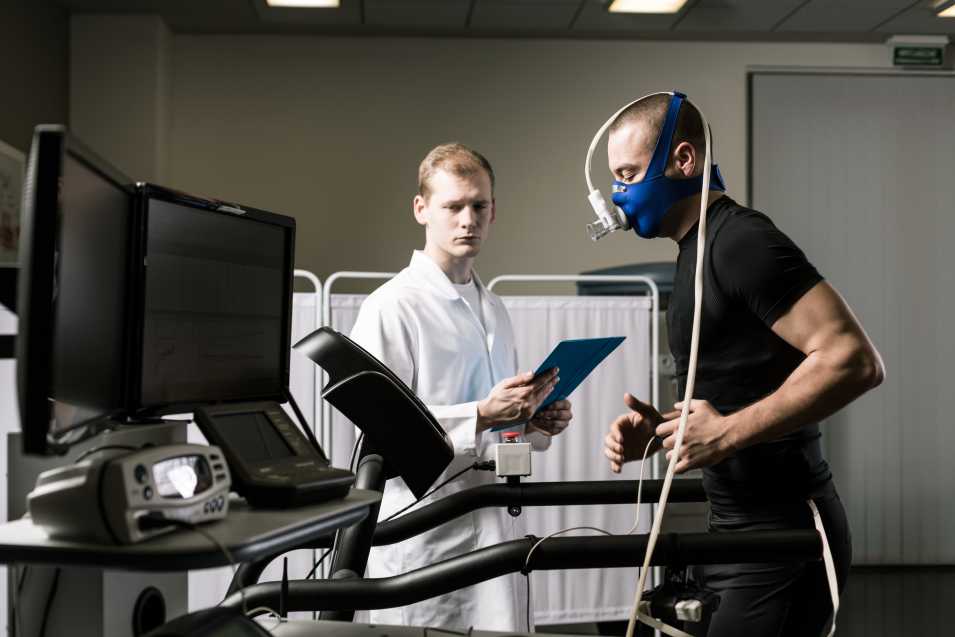The treadmill stress test (TST) is a diagnostic procedure utilized to assess the adequacy of cardiac function in response to various levels of physical stress. Furthermore, it can aid medical professionals in assessing the presence of cardiac symptoms or an arrhythmia.
The test findings may also aid in determining the suitable intensity of physical activity for those undergoing cardiac rehabilitation or participating in an exercise program. Prior to the examination, individuals with diabetes should have dry toast or fruit.
What is the next step after an abnormal stress test?
If you have received an abnormal stress test result, it is important to follow your doctor’s advice. The stress test results can indicate your heart’s health and determine if you need further tests to rule out coronary artery disease. Additional tests may be recommended if your results are abnormal, depending on several factors. A coronary angiogram is a common next step after an abnormal nuclear stress test.
During the test, you will take medication to increase blood flow to your heart. This may cause flushing, shortness of breath, or a headache. However, you can stop the test when you feel uncomfortable. The doctor will also monitor the activity of your heart during the test.
If you experience chest pain, you should seek medical treatment immediately. An abnormal stress test points to an increased risk for coronary artery disease. If you also happen to have high cholesterol or be very overweight, this should cause you even more anxiety. However, if you have any of these conditions, it is important to discuss your situation with your doctor to see if you need further medical care.
Stress tests are important because they help doctors determine if you have any underlying heart problems. Normal results indicate a low risk for coronary artery disease. However, abnormal results indicate a higher risk for this disease or another heart condition. The results of a stress test can also guide your doctor’s treatment plan.
Treadmill Stress Test
The Treadmill stress test on a treadmill is a form of cardiovascular stress testing that is used to assess the heart’s response to exercise. The test can help physicians detect abnormal heart rhythms and coronary artery disease. The test involves walking on a treadmill at varying speeds and incline levels. Blood pressure, electrocardiogram, and heart rate are recorded while the patient exercises.
The test consists of a five to fifteen-minute treadmill exercise, with the speed and incline increasing gradually. A trained technician will monitor the heartbeat and blood pressure every few minutes. After the test, the patient will be asked to rest and drink water. The test will be completed if there are no heart failure or arrhythmia symptoms.
Before the test begins, the technician will prepare the chest of patient and place sticky patches on the chest. The patches are connected to wires that are attached to the ECG machine. The ECG machine will measure your heart’s response to stress. The cardiology technician will be next to you the entire time.
If you think you may have coronary disease, you should have a stress test done. A treadmill exercise test is a good option to rule out this condition. However, it is important to consult a qualified physician before beginning such an exercise test.

Stress Test Cost 2023
Treadmill stress test; In addition to the patient’s insurance coverage, the Treadmill stress test’s price tag also takes into account the lab’s fee for performing the test. The average cost of the treatment is $300, although it can range from $200 to $400. The price does not include the price of a doctor’s visit or the price of having the results interpreted.
The insurance copay may reduce this cost for patients with medical insurance. For example, Harvard Pilgrim Health Care charges between $270 and $379 for the test, with an additional $24-$39 for the interpretation.
Treadmill stress test prices can also be affected by the patient’s age and the presence of any preexisting conditions. For example, people with diabetes or a history of heart disease may face more significant complications risks. However, people with no heart disease or other heart-related conditions may also benefit from a stress test.
Patients with heart disease should have an exercise stress test performed when their doctors feel that it is necessary. This procedure can help determine whether or not a patient is suitable for cardiac rehabilitation. It can also determine whether a patient has a blockage or is at high risk for developing a blockage in their heart. However, a false-positive result may lead to unnecessary testing, which increases insurance costs and patient anxiety.
A cardiac stress test involves monitoring the heart’s response to various forms of stress. This test is expensive, and its price varies from lab to lab. It is essential to have the right equipment for the test to be accurate. An EKG machine with several sensors is needed to monitor the heart’s response to stress. Depending on where the test is performed, it can range anywhere from a few hundred to several thousand dollars.
Related Article: Depressive Episode
